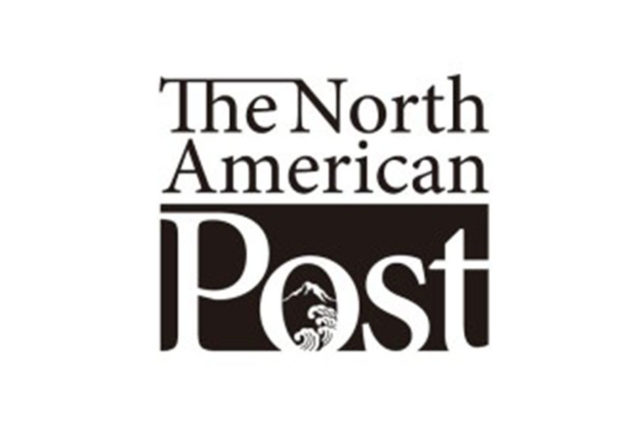On June 4, Ruby de Luna of KUOW reported on a dozen volunteers who are watching the International District at night, “being visible,” in response to post-COVID vandalism. Many restaurant-goers have been avoiding the ID out of fear of catching the virus from locals with ties to its country of origin. Numerous businesses are temporarily closed. The lack of people makes the neighborhood a target.
For me, the story immediately brought to mind something that Dad told me, I believe in the 1990s.
“We used to patrol the streets at night,” he told me one day. By streets, he meant the ID, where our family had an import-export store on Maynard Avenue, in the present location of Purple Dot restaurant.
“What?” I had asked. I had never heard it before.
“Yes,” he said. He and a few buddies from his Seattle Dojo judo days would walk the ID streets in small groups.
The story was stunning because the Dad I had always known was an ordinary, quiet, middle-aged Nisei.
“Wasn’t that dangerous?” I asked. “Like asking for trouble?”
“In those days, we didn’t give a damn,” came his reply. “We never told anyone we were doing it. We just did it.”
While I did not press Dad for further details, his young man’s perspective and my knowledge of his life history place the period during his single, working days after World War II, before Mom was in the picture. While Dad was not a large man, I know that he was tough then. For several have told me how during deliveries involving stairs, he would carry in a 100-pound sack of rice on one shoulder while hefting a 5-gallon “taru”—a wooden bucket—of shoyu in his opposing hand. This is over 140 pounds (64 kg). Dad had grown up doing this. This may be how he met Mom.
During that post-war period, Dad was the store employee who met the burly truck drivers who delivered the heavy goods to our store. He told me of two. The first gave Dad guff because he had not known he had driven a load to a “Japanese” company. Like many Japanese-American businesses, the name of ours was generic American: “North Coast Importing.” Dad said that Jiichan, my grandpa, had to come out of the office to ask him to calm down. Another driver refused to help Dad unload the truck, saying “he only drove.” Dad told him that if he didn’t help, then he and his truck would just sit there. Dad knew that time is money for a driver.
Dad carried some of his fire into his early married years. In the mid-1950s, African-American Alfred Petty pulled a fast one by having a white “front man” arrange to purchase the mid-Beacon Hill house three doors from where I type today. Mr. Petty only stepped in last-minute to sign the contract. In those days, realtors would not show neighborhood homes to non-whites. The neighbors all signed a petition to get Mr. Petty, a Korean War vet, out. It was my dad, also new to the neighborhood, who went door to door, getting them to cross their names off the list. Dad and Mom had moved in by dealing directly with the seller. Today, the story of Mr. Petty and Dad is in the Beacon Hill history book.
Where did Dad get his self-confidence? Certainly going away to college, in Denver during the war, and later serving as an officer in Uncle Sam’s army, had helped. In both roles, he had seen what is possible in American society. Governor Ralph Carr had welcomed JA’s to Colorado. In the army, white soldiers must have saluted Dad.
Yet Dad held one deeper secret, which probably only my brother and I remember today. It was that Dad was a ni-dan, a second-degree black belt in judo. Hating the martial art at first as a boy, at Jiichan’s insistence, he had persevered, until the ancient skill began serving him.
We only learned how expert Dad was after we started getting thrown in judo tournaments as junior-high and high-school students. Afterward, Dad would take us down in the basement, out of sight of Mom. There, he would give us a post-tournament lesson.
“The next time someone has you in that situation, do this.” And Dad would angle our heads down toward the floor so fast, it was unbelievable. While he never threw us, from that first set-up position, we knew he could. He put us so off-balance we could barely stand.
Another Dad-lesson I remember: “At a tournament, you do not just sit there, waiting for your name to be called. You study each potential opponent, watching for strengths and weaknesses.”
Other than these brief lessons to us, Dad never practiced his judo. His skill lived in his long-term muscle memory.
While we boys never achieved Dad’s martial-arts mastery, many other things we learned from him or because of him continue to serve us. In my case, they lead directly to my writing in this space.
Dad and his older employees were my role models of people who earned their livings bilingually. It was he and my Uncle Min who drove my cousins and I to the Seattle Japanese Language School like clockwork. It was ready access to Dad’s history books that led to my lifelong interest in it. He was the one who introduced me to master linguist Hachiro Kita, formerly of Denver, who had lived in Seattle before WWII.
During the war, Hatch was the Military Intelligence Service translator assigned to General Douglas MacArthur.
“Wherever MacArthur went, I went,” Hatch told me.
Hatch and his Japanese wife made my Japanese conversational across the six years that my forestry career posted me near them.
Belated Happy Father’s Day, Dad. I remember what you taught me and made possible for me.







